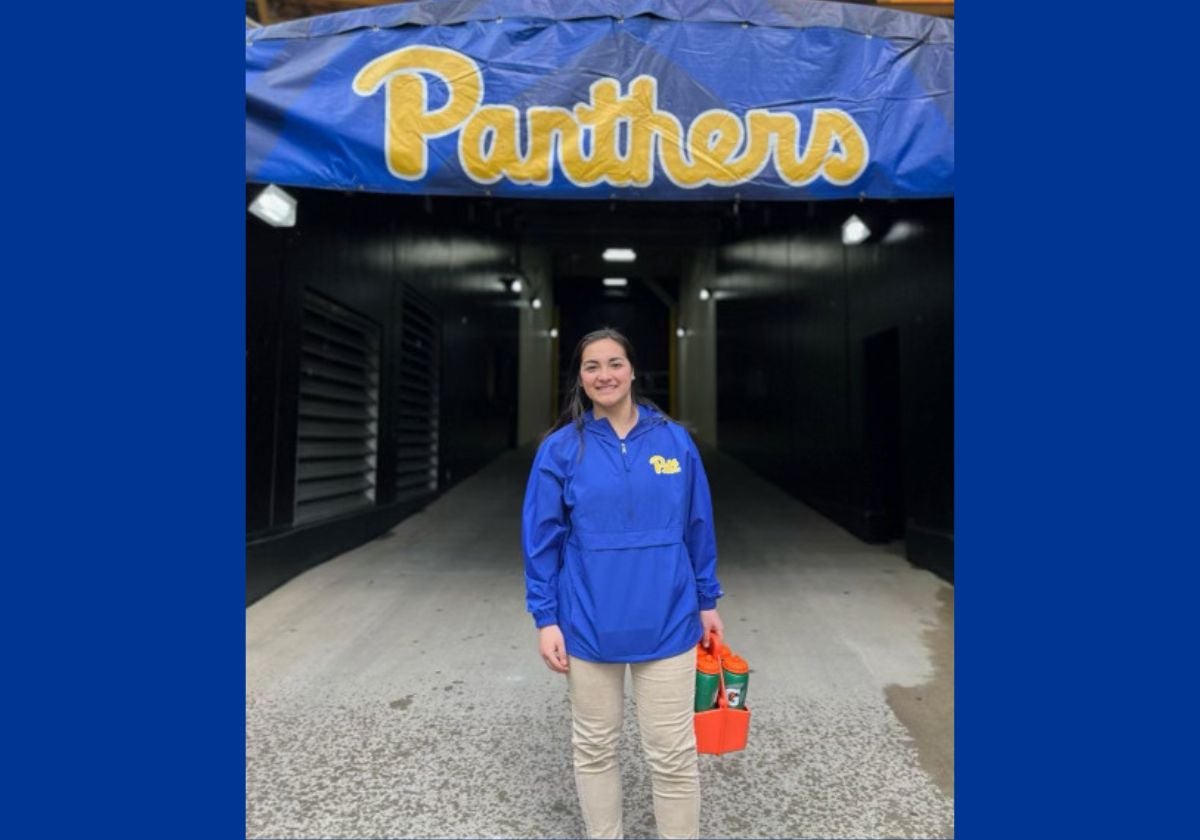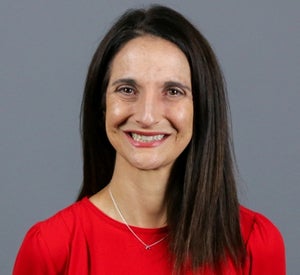Nicole Chiu entered the University of Pittsburgh Dietitian Nutritionist (DN) program in 2023 through the accelerated Master of Science path. Now in her final year of the DN program, Chiu will begin her required supervised experiential learning in the Sports Nutrition specialty rotation.
The DN program requires students to complete the majority of their supervised experiential learning during their final year in the program, which can include a 12-week rotation in a specialized area of nutrition. After volunteering with Pitt Athletics during her first two years in the program, Chiu was selected for placement in the competitive Sports Nutrition specialty, where she will work directly with student athletes on nutrition education.
Read more to learn about Chiu’s interest in sports nutrition and what she has learned so far from the DN program.

The Sports Nutrition Specialty
What made you want to participate in the Sports Nutrition specialty?
I grew up playing sports and was always interested in nutrition and overall wellness, which is what interested me in sports nutrition. The broad nature of the dietetics field is what appealed to me about becoming a dietitian, and I like having the opportunity to utilize my skills and knowledge in a variety of workplace settings, including sports, research and private practice.
What sets this Pitt program apart from others?
I chose Pitt’s Dietitian Nutritionist program because of the Sports Nutrition specialty offering. I also liked how there were a variety of other specialties available as well, which showcases the many connections Pitt has and the plethora of opportunities in a city like Pittsburgh.
What will your role be in the Sports Nutrition specialty with Pitt Athletics?

My Sports Nutrition specialty rotation will last about 12 weeks during the spring 2026 semester. I will be working with dietitians in the Pitt Athletics Sports Nutrition department. Typically, students in the Sports Nutrition specialty rotation are placed with Pitt Football or with Olympic sports and are assigned new incoming athletes that they work with throughout the semester. Day-to-day responsibilities may include counseling athletes, performing body composition testing, leading team talks, attending performance meetings, creating nutrition education resources and assisting volunteers in our fueling stations.

Working with Pitt Athletes
How will you have used what you learned thus far in this specialty?
Having completed courses in medical nutrition therapy, research, nutrition education and counseling, I feel confident in my ability to think critically and utilize the foundational nutrition knowledge I have gained when counseling patients/clients. Throughout the program, I have had many experiential learning opportunities, including organizing cooking demonstrations, leading health coaching sessions, giving nutrition education presentations to various members of the community and performing nutrition screening for individuals in a senior living facility. These practical experiences have supplemented my learning in the classroom well and have prepared me for working with different populations in a variety of settings. I am looking forward to applying these skills to the athlete population.
What is beneficial about working with athletes directly?
I am a goal-oriented individual, so it is rewarding to see athletes achieve their own performance goals as a result of various nutrition interventions. Personally, I have been able to benefit from adequate fueling to support my own athletic performance, and I am passionate about helping other athletes find the link between nutrition and performance.
Will you work with coaches or anyone besides the athletes?
Yes. Working interdisciplinary with sports medicine staff, including sports dietitians, athletic trainers, physical therapists, strength and conditioning coaches and performance chefs is crucial to supporting our athletes. There is constant communication between these team members to ensure athletes’ safety, support and maximal performance. For example, poor performance during a lift or practice may be a sign of inadequate intake or hydration, which must be communicated to the nutrition team from an athletic trainer or strength coach.

Do you aspire to work in sports nutrition after graduation?
Yes, through my experience working in the Pitt Athletics Sports Nutrition department, I have deepened my interest in sports nutrition and hope to pursue a career in the field.
What is something fun you have learned about athletes and their nutrition?
Growing up, I was always a bigger fan of strawberry Uncrustables compared to grape. I learned this is a controversial opinion, at least among our student athletes at Pitt! It was also surprising to learn how many boxes of Uncrustables we can go through daily.
Related Stories

Learn more about the collaboration between the Dietitian Nutritionist program and Pitt Athletics, featuring Auburn Paulone, assistant director for performance nutrition at Pitt Athletics and Tracy Maluchnik, SHRS assistant professor within the Dietitian Nutritionist program and clinical instructor for the Sports Nutrition specialty rotation.

Read about Dietitian Nutritionist student Nick Sage’s journey through the SHRS Nutrition Science and Sports Science programs and how they led him to the Sports Nutrition specialty rotation to become a sports dietitian.

Read about Dietitian Nutritionist student Mia Huber’s passion for nutrition and athletics as she anticipates her Sports Nutrition specialty rotation with Pitt Athletics.


